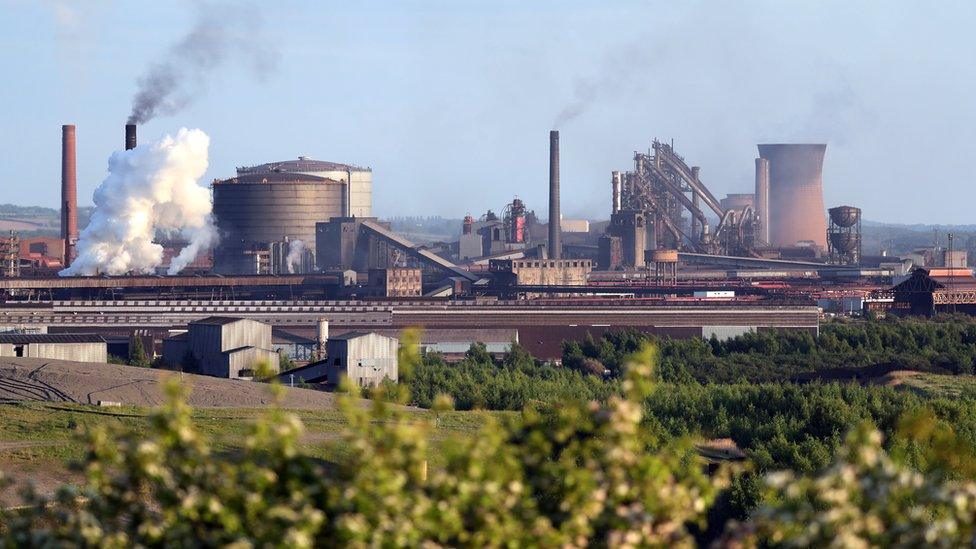British Steel: Scunthorpe reacts as blast furnaces set to close
- Published
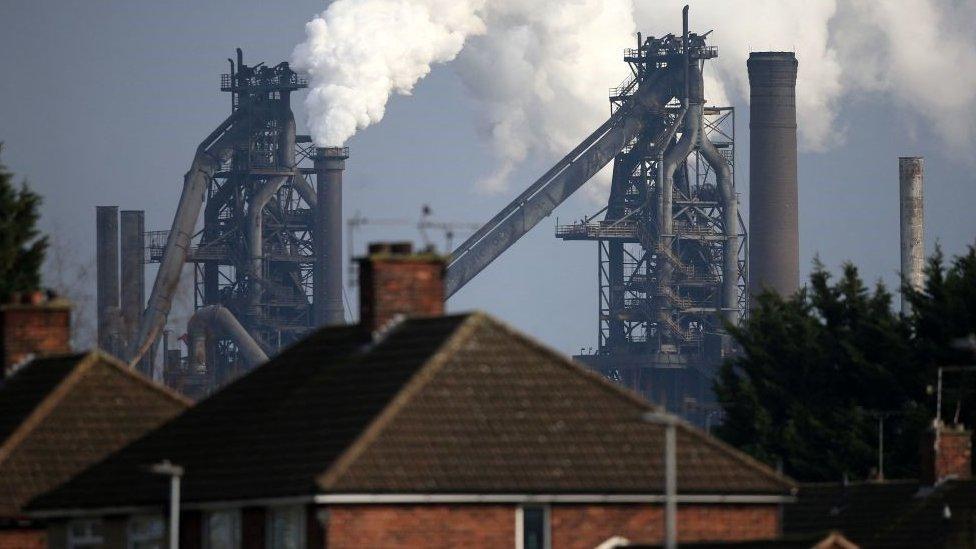
The steelworks dominate Scunthorpe's skyline
British Steel has announced it will close down its blast furnaces in Scunthorpe, putting up to 2,000 jobs at risk.
They will be replaced by two electric arc furnaces - one at Scunthorpe and one at Teeside.
Bosses insist the move is needed to create "a clean, green and sustainable business", but unions claim it could put between 1,500 and 2,000 people out of work, predominantly in Scunthorpe.
BBC News went to Scunthorpe as the announcement was made.
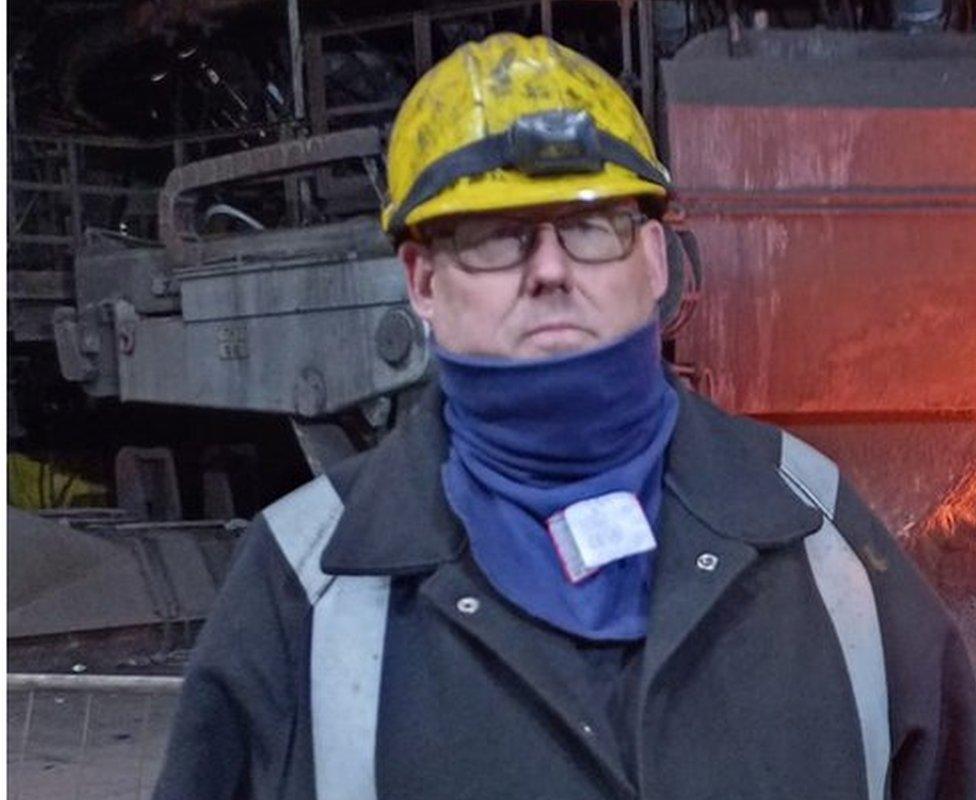
Tony Gosling, a blast furnace worker and councillor, says the plans are "a devastating blow" to Scunthorpe
Tony Gosling, a councillor and Community trade union official, describes the latest British Steel announcement as "a devastating blow for Scunthorpe".
"The steelworks are a well-paid employer," he says. "It's still the largest employer in the region. The loss of so many jobs will have a serious effect on the local economy."
An experienced blast furnace worker, Mr Gosling recalls how his childhood bedroom would be bathed in light as slag was tipped at the plant.
"My room would light up in all these reds, yellows and oranges," he says, adding "everyone in our street was a steelworker".
UK steel giant set to cut up to 2,000 jobs
Following in the footsteps of relatives, Mr Gosling joined the steelworks at 16. Aged 58, he's still there - for now.

Flower stall owner Shelley Wilson has a steelworker son
Shelley Wilson owns a small flower stall in The Foundry; even the shopping centre has a link to steelmaking.
She tells me her son, who recently bought a home, works at British Steel. His future, like Mr Gosling's, hangs in the balance.
Ms Wilson believes the impact of the announcement will be felt far beyond the works' perimeter fence.
She says: "You can tell when the steelworkers get paid because the town starts to get busier. People will not come into town to spend money because there will not be any money."
Blast furnaces use coke to reduce iron ore, whereas electric arc furnaces melt down scrap or recycled steel. Earlier, a British Steel spokesperson said the company was committed to "providing long-term, skilled and well-paid careers for thousands of employees and many more in our supply chains".
Ms Wilson does not share that optimism.
"I know they want to go carbon neutral," she says. "But is it going to work? I don't think it will. I don't think you can have net zero and a steelworks side by side."
People here have faced years of uncertainty around the steelworks. They're used to cuts. But this feels different; the blast furnaces are the steelworks.
The wave of optimism that washed over this town in 2020 when Chinese group Jingye bought British Steel has long gone.
Outside Boots, Linda Cairns, 74, tells me: "When companies close things they always say we are going to do this and that. Does it ever materialise? I don't think so."
Ms Cairns says she thought this day was coming. "I'm not surprised," she adds, with a shake of her head: "There are no jobs anywhere for anybody."

Linda Cairns fears for the future of Scunthorpe
She says the town centre is "dead" and believes those shops still trading will struggle to stay open "because people won't have money to spend."
Glancing up at a weathered memorial to Scunthorpe's workers, John Atkinson laments the loss of a proud and once-mighty industry. He retired as an assistant blacksmith having spent 34 years at the steelworks.
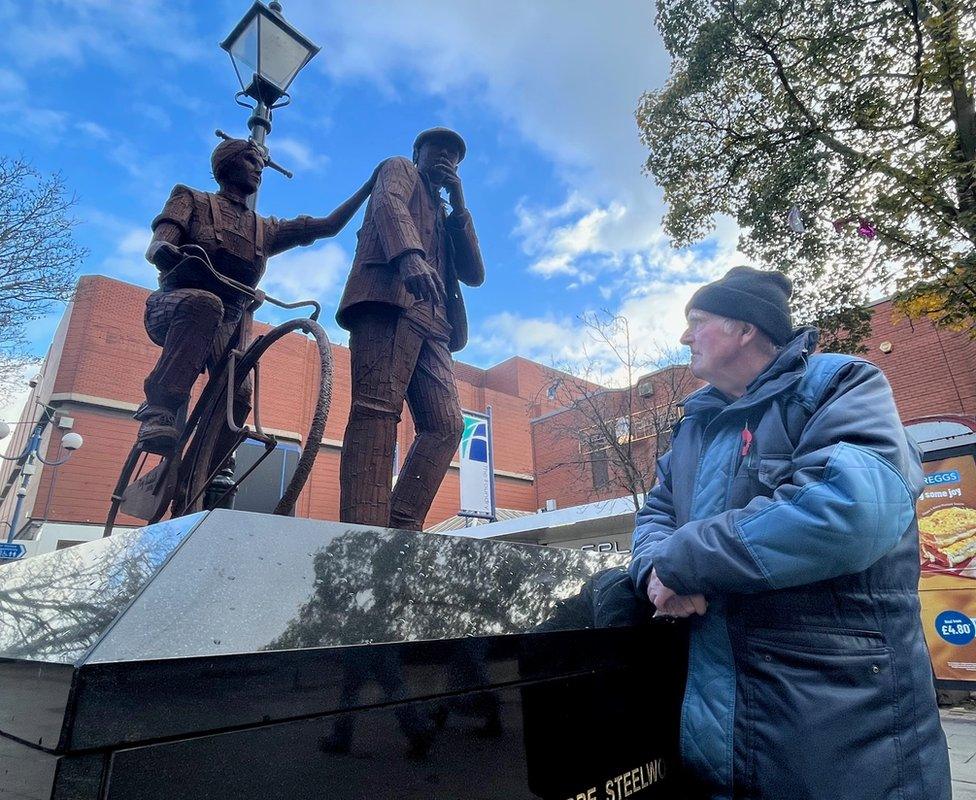
John Atkinson, a retired blacksmith, at the memorial to Scunthorpe's steelworkers
"It was brilliant," he says. "I left school on the Friday and started work at the steelworks on the Monday. I worked there my whole life."
The 76-year-old said closing the furnaces, and with it the loss of hundreds of jobs, will "cripple the town".
"It will affect everything, not just the steelworkers," he says, pointing to the row of shops behind us. "It's a disgrace."
Jane Hadley, 57, tells me people were already struggling - and that was before the latest announcement.
"It's going to have a catastrophic effect for everybody," she says. "I feel so sorry for all the families before Christmas. How are they going to get jobs when there is nothing in Scunthorpe? How are people going to survive?"
Ms Hadley says over the years she has watched, with dismay, "closures, reopenings and takeovers" at the steelworks.
"Where's it going to end?" she adds.
British Steel announced in February it was closing its coking oven, used to turn coal into fuel for the blast furnaces. At the time, chief executive, Xifeng Han, said steelmaking in the UK was "uncompetitive" with some of the highest energy, carbon and labour costs in the world.
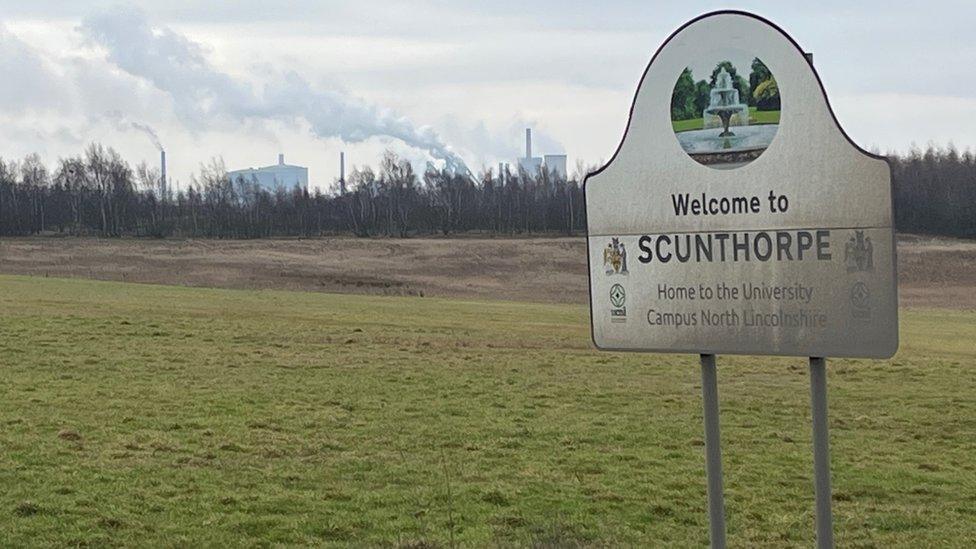
Scunthorpe has been synonymous with steel since the 19th Century
Back at the steelworks, Mr Gosling points out there are four operational blast furnaces in the UK - two at Port Talbot in Wales and two at Scunthorpe.
The furnaces at Port Talbot are also to be mothballed.
"The UK will have no blast furnace capability," says Mr Gosling. "That will have a devastating effect on the UK economy. We need central government to provide funding for hybrid furnaces, which would allow us to continue to use blast furnaces until economic conditions allow us to switch to electric arc furnaces."

Follow BBC East Yorkshire and Lincolnshire on Facebook, external, X (formerly Twitter), external, and Instagram, external. Send your story ideas to yorkslincs.news@bbc.co.uk, external
Related topics
- Published6 November 2023
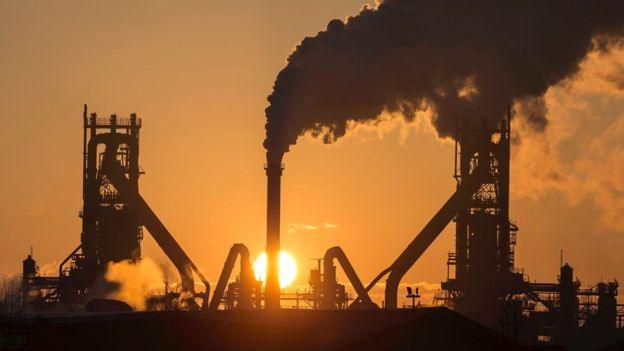
- Published28 June 2023
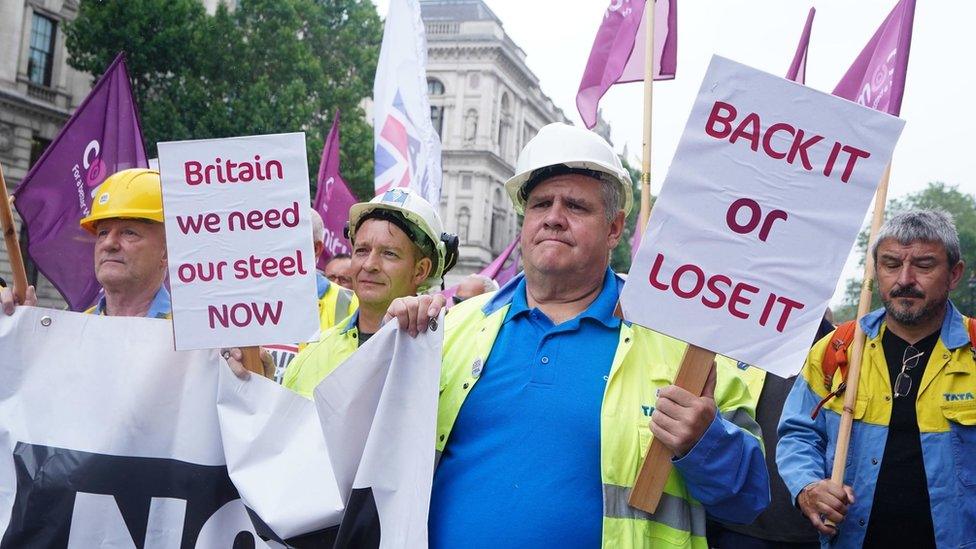
- Published23 January 2023
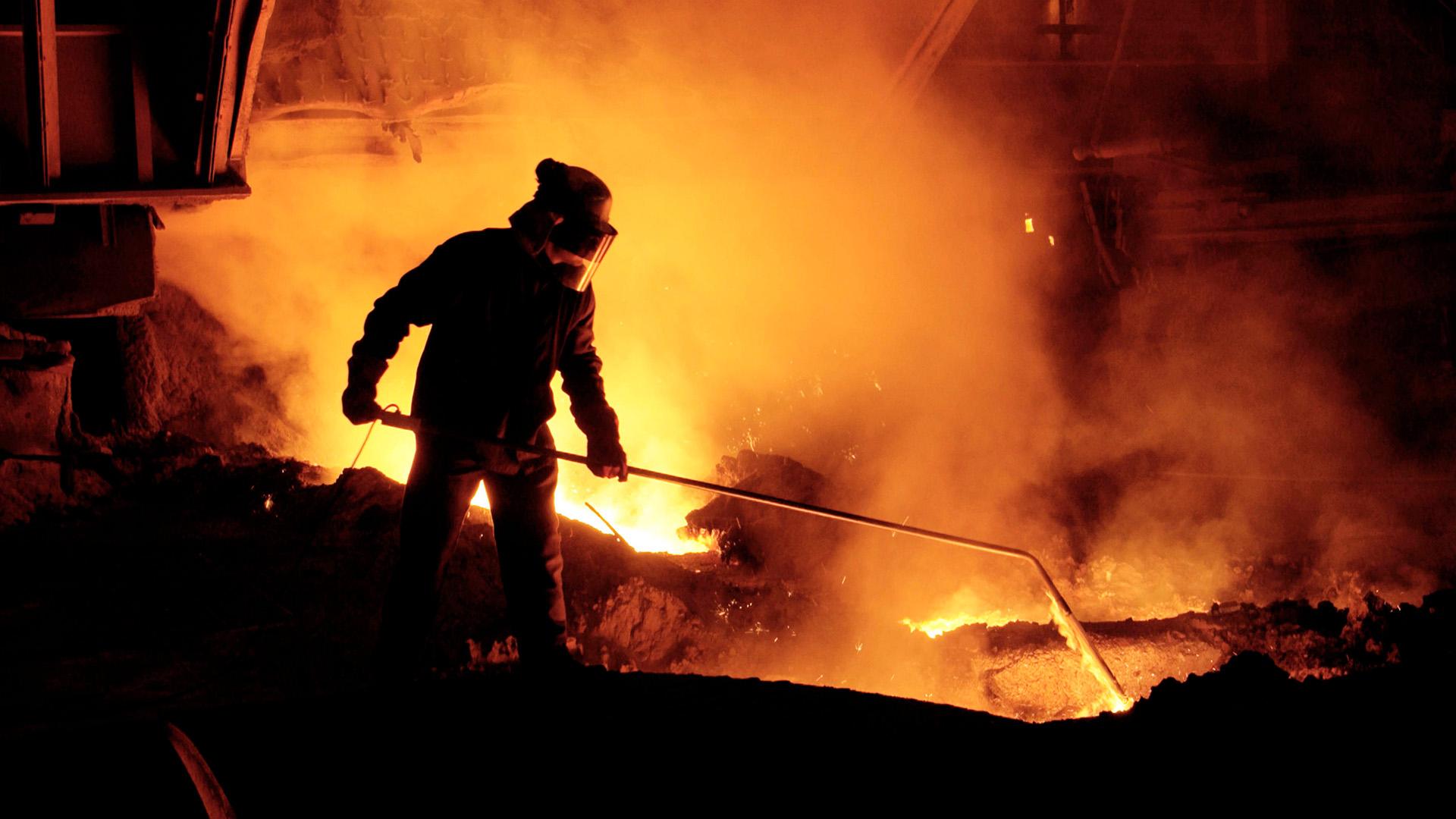
- Published6 April 2023
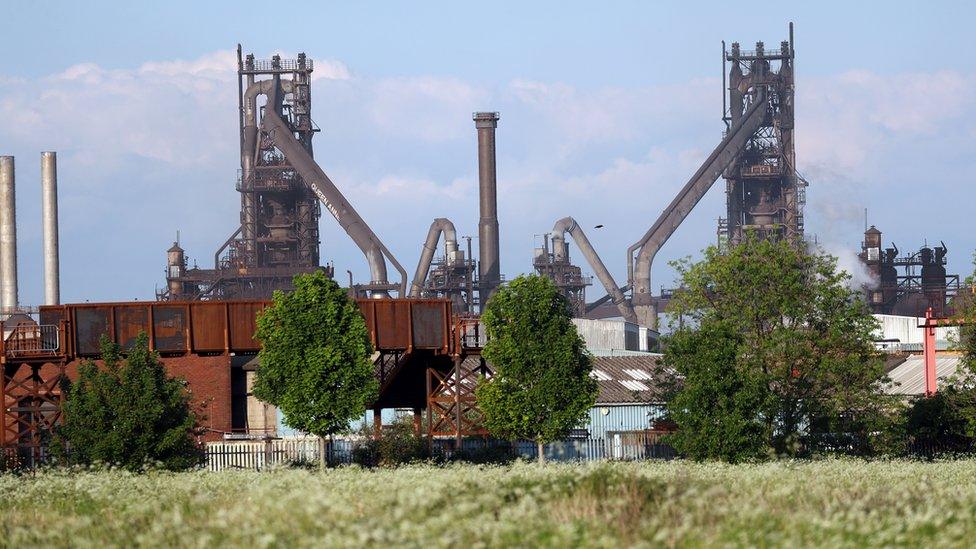
- Published22 February 2023
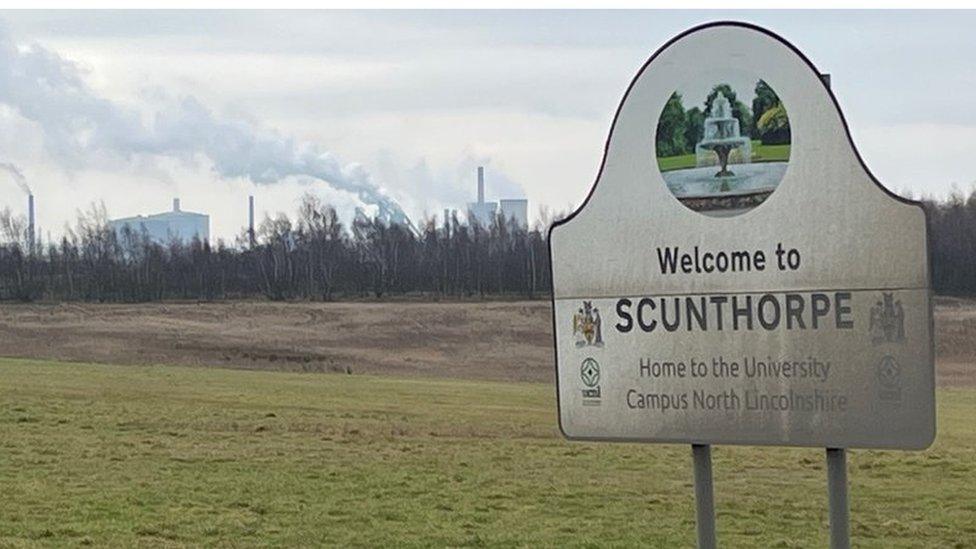
- Published4 February 2023

- Published21 January 2023
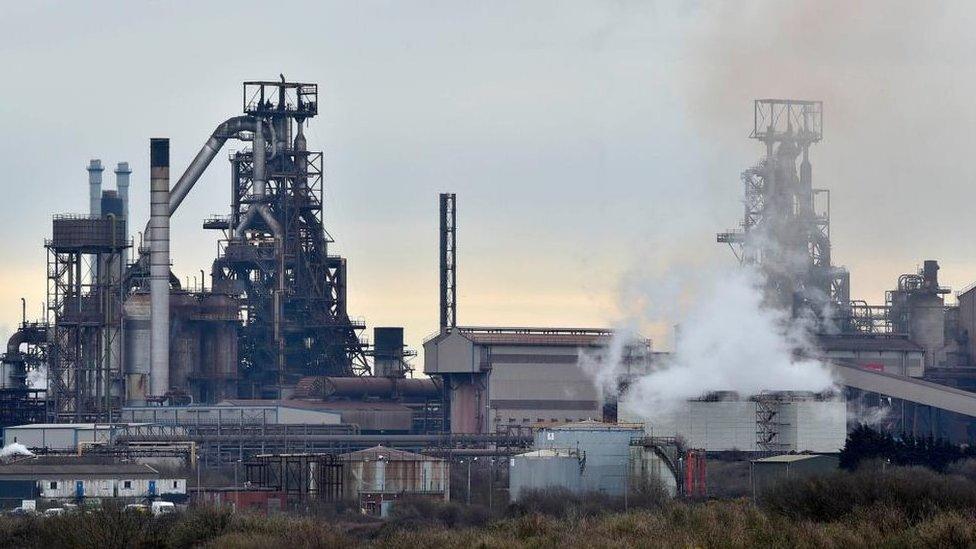
- Published3 March 2020
